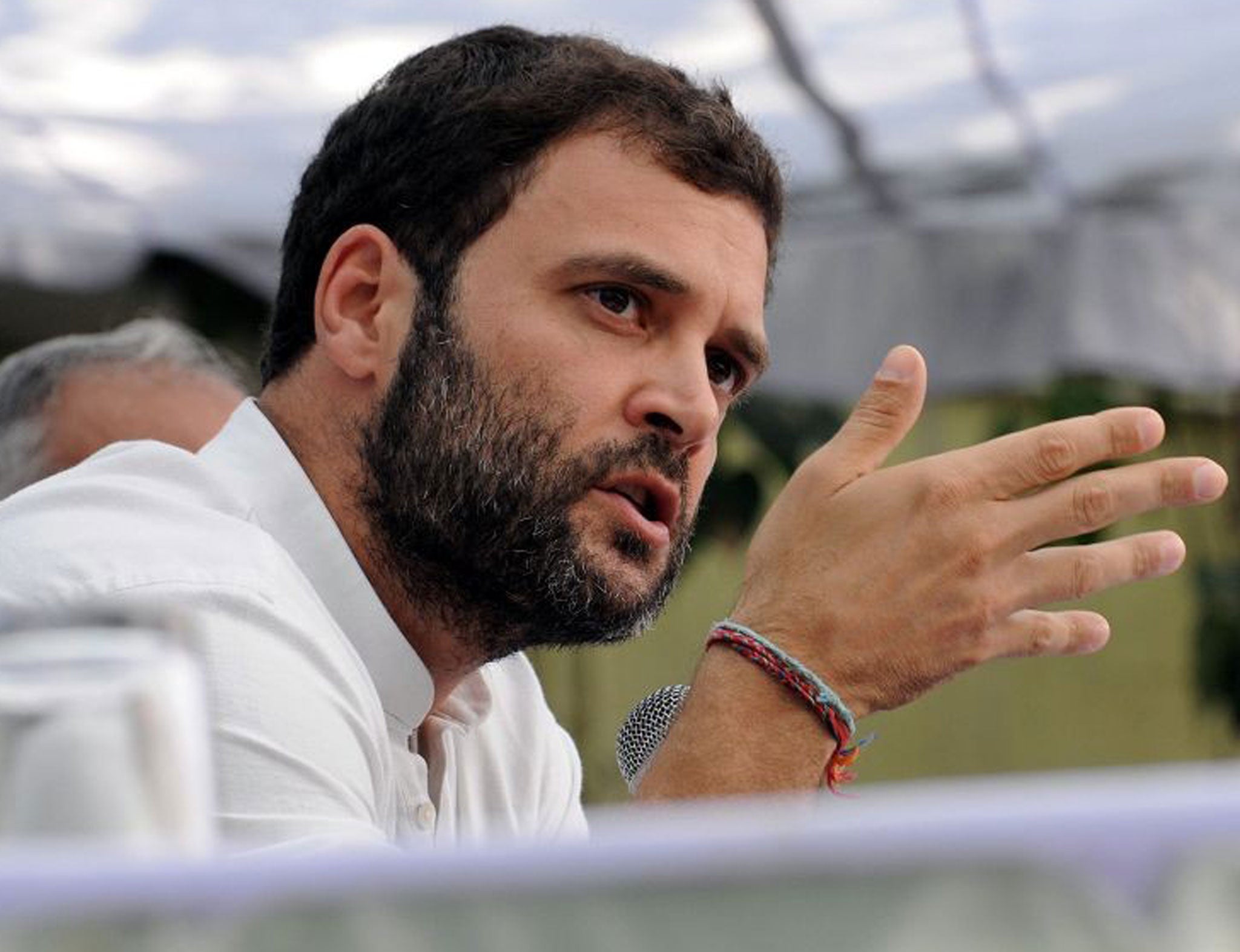Indian politician Rahul Gandhi condemns 'nonsense' plan to protect convicted politicians
Gandhi - widely believed to be a future prime minister of India - says cabinet ordinance is 'complete nonsense and it should be torn up and thrown out'

Rahul Gandhi, the scion of India’s first political family and the man who will head the Congress party’s campaign at the next election, has stunned the government by denouncing as “nonsense” a plan to protect convicted politicians.
The Indian government had triggered widespread controversy by seeking to pass by a back-door method legislation that would have blocked convicted politicians from being disqualified from parliament. Such was the unease about the measure that the country’s president had indicated he was not keen to sign it into law.
But on Friday, with prime minister Manmohan Singh in the US where he is due to meet Barack Obama, Mr Gandhi slammed the government’s proposal, hijacking a press conference that had ostensibly been called to defend the measure.
“This is complete nonsense and it should be torn up and thrown out. It is my personal opinion,” Mr Gandhi said in Delhi, before repeating his point. “All parties do this because of political considerations and we must stop making compromises.”
He added: “It is time to stop this nonsense, political parties, mine and all others. If you want to fight corruption in the country whether it is Congress Party or BJP (Bharatiya Janata Party), we cannot continue making these small compromises. Because if we make these small compromises, then we compromise everywhere.”
The comments of Mr Gandhi, the great-grandson of India’s first prime minister, Jawaharlal Nehru, were leapt on by political commentators as well as the political opposition. Arun Jaitely, a senior leader of the main opposition BJP, said those behind the legislation, which was being passed by a cabinet “ordinance” rather than the parliament, should resign.
“All I can say is, this is a highly belated realisation of what constitutes nonsense,” he told the Press Trust of India.
While he has not been declared its prime ministerial candidate ahead of elections scheduled to take place before May, Mr Gandhi is widely expected to lead the Congress party’s election campaign. As such, his statement on Friday may have been designed to create some buzz for himself while seeking to suggest there is space between himself and the broader party establishment.
“It certainly reflects a desire to distance the Congress from Manmohan Singh,” said Ashok Mailk, a Delhi-based analyst and writer. “Nevertheless it is remarkably poor politics. Rahul has let down senior ministers who have defended the ordinance and, separately, tried to cover up for Rahul's shortcomings.”
Malvika Singh, editor of Seminar magazine and a celebrated observer of Delhi politics, said Mr Gandhi had been working for some time to counter the corrupt way that Indian politics had typically been done. “Everyone says you have to carry it with you but he is trying to change the narrative,” she said. “It is a complete commitment to what he said.”
The ordinance passed by India’s cabinet had been introduced earlier this week to overrule an order by India’s Supreme court that said politicians convicted of crimes should be removed from office.
The allegations of criminality facing India’s politicians are notorious. This week, an anti-corruption organisation, the Association for Democratic Reforms, estimated that of India’s 4,807 national and provincial politicians, around 30 per cent had criminal charges against them. At least 15 per cent faced “serious charges”, including rape and assault.
Whether the government will continue to support the measure is now unclear. It is unlikely Mr Singh will address the issue until he returns from the US.
Among those parties which had opposed the ordinance was the recently-formed Aam Aadmi, or Common Man, party. Its members had on Friday visited India’s president, Pranab Mukherjee, urging him not to sign the ordinance into law.
A party spokesman Manish Sisodia, said: “This is all merely a drama. Rahul Gandhi wants to show that he understands the country better than the parliament and the party. He is trying to position himself as a hero.”
Join our commenting forum
Join thought-provoking conversations, follow other Independent readers and see their replies
Comments
Bookmark popover
Removed from bookmarks